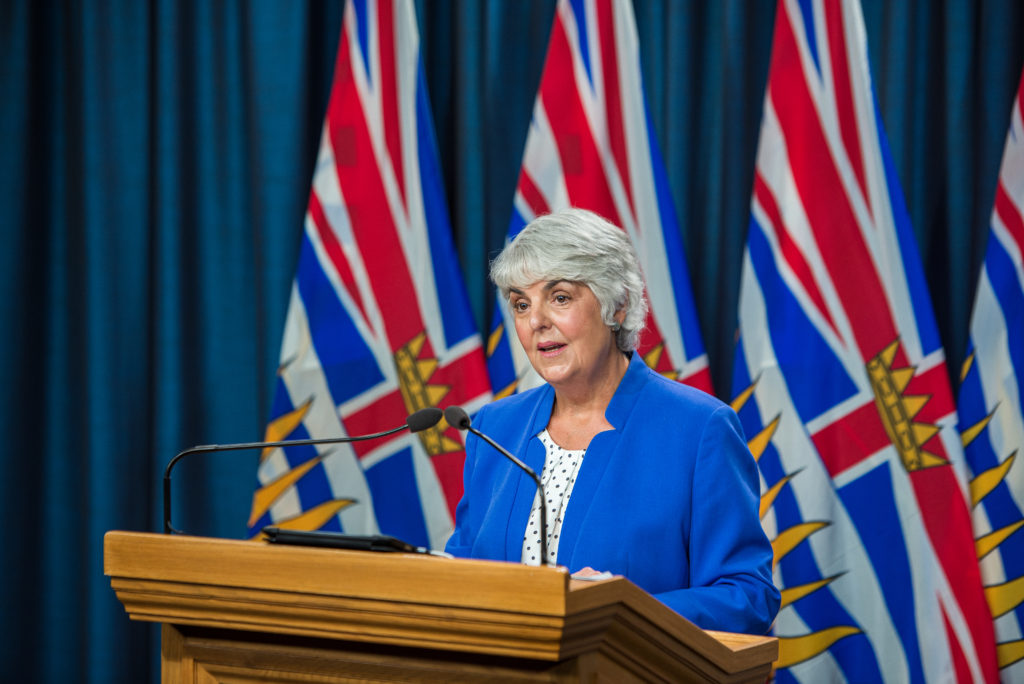
Finance Minister Carole James said Tuesday that the government is projecting a $12.5 billion deficit for 2020/2021 due to the ongoing COVID-19 pandemic.
The announcement on the deficit comes five months after the provincial budget featured a marginal surplus.
James said tabling a balanced budget in February, B.C.’s economic situation changed dramatically once the pandemic hit, adding with COVID-19, “our entire world changed.”
“This could be the worst downturn experienced in our province in recent history,” James said.
B.C.’s GDP is forecast to decrease by 5.4 per cent for 2020, while Canada’s is forecast to decrease by 6.6 per cent.
As part of the deficit, a total of$1.3 billion less than expected in PST, $999 million less than expected from personal income tax and $973 million less from corporate income tax.
According to James, people have been returning to work as the unemployment rate decreased to 13 per cent in June from 13.4 per cent in May. However, the unemployment rate is highest since 1987 says James. Youth unemployment is at 29 per cent.
So far, $1.5 billion has been earmarked by the province for economic recovery measures. James said that so far, the government has provided $6.26 billion in financial aid to businesses and individuals.
“Things are getting better each and every day when we follow the provincial health officer advice,” James said.
According to James, the latest economic projection is a “snapshot in time.” The B.C. economy could grow back 3.1 per cent in 2021, according to the economic projections. However, there are unknowns, such as a second wave.
“We could see these numbers shift in a whole number of ways,” James said.
The B.C. government has already tabled legislation giving itself room for three years of deficits and James says that will be re-examined each year.
James said Tuesday “now is not the time to cut back on services and supports,” adding the province is not planning to pull back on spending in order to chip away at the deficit.
Last week, James unveiled the latest numbers on unemployment within British Columbia, suggesting the latest numbers painted a picture of cautious optimism with still a long road ahead.
It was the service sector that seems to have been hit the hardest during the pandemic and James highlights that, despite job gains in May and June, net job losses since the start of the pandemic stand at 235,000.
Data presented on Tuesday showed that retail sales fell by 24 per cent between February and April, with the biggest sales losses in clothing, sports, hobbies, books, music, furniture, gasoline, and motor vehicles and parts.
Home sales plummeted by 45 per cent between February and May, with home prices dropping four per cent.
B.C. finance minister Carole James now speaking.
She says after tabling a balanced budget in February, things changed dramatically once the pandemic hit.
— CHEK News (@CHEK_News) July 14, 2020
With files from CBC and The Canadian Press



